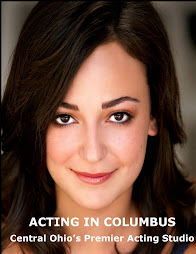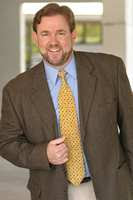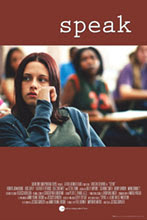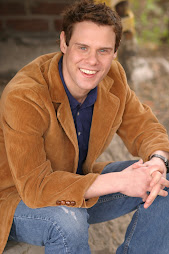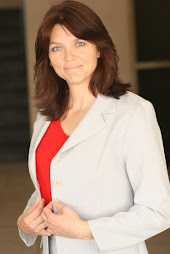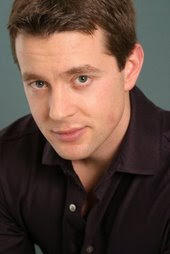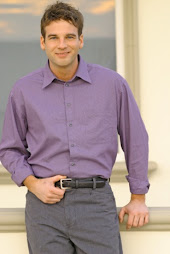
Former Acting in Columbus students now living in LA share their stories.
SEAN VELIE
LA is tough, very tough. Sometimes I want to be back in Columbus where I actually had auditions ha ha. I had no luck landing a theatrical agent in my first year, but did get a commercial agent. She is a well known agent who has been established since 1976. I don't think I worked hard enough in my first year, I need to work much harder this year. Moving here was a huge adjustment for me, luckily I moved with my girlfriend Hannah and that made it a lot easier. When you move to LA, it's not the actor moving, it's YOU moving, and it was very difficult for a while.
I take a weekly acting workshop with Jack Plotnick. He is amazing, I have heard a few people say he is the best in LA, which is quite a statement. He has been a working actor in LA for 15 years. He worked opposite Rene Zellweger in "Down with Love", Ian McKellan in "God and Monsters", and Sally Field in "Say it isn't so", to name a few credits. It's an audition workshop. You come in, he gives you sides, and he reads with you, as if he is the casting director. Each actor gets about 15 minutes.
A few of his quotes:
"It's the spontaneus moments that book jobs. The more of those you have, the better chance you have of booking the job"
"The creative choice is the honest choice"
"As the actor, you must want to feel, but remember that the character doesn't"
The highlight of my first year was definitely "Valkyrie". I worked 4 days on this movie and it was an incredible experience. I worked very close to Tom Cruise for 3 of the 4 days. He is a cool guy, I liked him. He was a nice guy and had a good sense of humor. He works extremely hard and you can tell he's also having a lot of fun.The first day he came to set, I was pretty star struck. 8 months in LA and I'm working next to one of the biggest movie stars in the world, a legend. That wore off after the first day though. It was so cool after a take, when the 1st AD says "Back to one", and I'm walking back next to Tom Cruise. I got lucky, I was originally booked SAG Background as a German soldier for the North Africa desert scene. I found out that the director wanted to feature me as an injured soldier. I was pretty excited obviously. I am in the theatrical trailer, which is awesome, but unfortunately was cut out of the movie, which sucks. The scene is at the very beginning of the movie, and they definitely made it as short as they could. they clearly cut it down. Oh well, at least I was in the trailer. I saw the movie and it is great, a must see. I recently worked on "Angels and Demons", starring Tom Hanks and directed by Ron Howard, which was really cool. I like LA a lot, but the traffic is even worse than advertised.
 Britni Karst
Britni Karst
Upon graduation from high-school, Britni had planned to move to New York City to pursue singing; however, after a little nudging from her parents to obtain a college degree she enrolled in the Nursing School at The Ohio State University. Although her mother had mentioned that she should study theatre, it was only when a friend told Britni about her acting class (Acting in Columbus) that she decided to enroll. Britni was hooked immediately! She continued to study acting while simultaneously attending classes at The Ohio State University. For the next three years Britni studied the likes of Stanislvaski, Strasberg, Uta Hagan, Stella Adler and Sanford Meisner. Upon graduation from The Ohio State University in an unheard of three years, Britni decided to decline all job offers and move to LA to pursue acting. To make ends meet she worked at times three jobs and lived under modest means. Her first break came when offered a job as a personal assistant to film Director Alejandro Gomez Monteverde and wife actress Ali Landry. The job opened a wealth of knowledge to Britni about the film industry and turned over a new leaf in her pursuits, directing and writing. Britni is now writing her first short film and studying at the Ivana Chubbuck Studios honing her skills as an actress. The future holds many successes for this young talent.
SEAN VELIE
LA is tough, very tough. Sometimes I want to be back in Columbus where I actually had auditions ha ha. I had no luck landing a theatrical agent in my first year, but did get a commercial agent. She is a well known agent who has been established since 1976. I don't think I worked hard enough in my first year, I need to work much harder this year. Moving here was a huge adjustment for me, luckily I moved with my girlfriend Hannah and that made it a lot easier. When you move to LA, it's not the actor moving, it's YOU moving, and it was very difficult for a while.
I take a weekly acting workshop with Jack Plotnick. He is amazing, I have heard a few people say he is the best in LA, which is quite a statement. He has been a working actor in LA for 15 years. He worked opposite Rene Zellweger in "Down with Love", Ian McKellan in "God and Monsters", and Sally Field in "Say it isn't so", to name a few credits. It's an audition workshop. You come in, he gives you sides, and he reads with you, as if he is the casting director. Each actor gets about 15 minutes.
A few of his quotes:
"It's the spontaneus moments that book jobs. The more of those you have, the better chance you have of booking the job"
"The creative choice is the honest choice"
"As the actor, you must want to feel, but remember that the character doesn't"
The highlight of my first year was definitely "Valkyrie". I worked 4 days on this movie and it was an incredible experience. I worked very close to Tom Cruise for 3 of the 4 days. He is a cool guy, I liked him. He was a nice guy and had a good sense of humor. He works extremely hard and you can tell he's also having a lot of fun.The first day he came to set, I was pretty star struck. 8 months in LA and I'm working next to one of the biggest movie stars in the world, a legend. That wore off after the first day though. It was so cool after a take, when the 1st AD says "Back to one", and I'm walking back next to Tom Cruise. I got lucky, I was originally booked SAG Background as a German soldier for the North Africa desert scene. I found out that the director wanted to feature me as an injured soldier. I was pretty excited obviously. I am in the theatrical trailer, which is awesome, but unfortunately was cut out of the movie, which sucks. The scene is at the very beginning of the movie, and they definitely made it as short as they could. they clearly cut it down. Oh well, at least I was in the trailer. I saw the movie and it is great, a must see. I recently worked on "Angels and Demons", starring Tom Hanks and directed by Ron Howard, which was really cool. I like LA a lot, but the traffic is even worse than advertised.
 Britni Karst
Britni KarstUpon graduation from high-school, Britni had planned to move to New York City to pursue singing; however, after a little nudging from her parents to obtain a college degree she enrolled in the Nursing School at The Ohio State University. Although her mother had mentioned that she should study theatre, it was only when a friend told Britni about her acting class (Acting in Columbus) that she decided to enroll. Britni was hooked immediately! She continued to study acting while simultaneously attending classes at The Ohio State University. For the next three years Britni studied the likes of Stanislvaski, Strasberg, Uta Hagan, Stella Adler and Sanford Meisner. Upon graduation from The Ohio State University in an unheard of three years, Britni decided to decline all job offers and move to LA to pursue acting. To make ends meet she worked at times three jobs and lived under modest means. Her first break came when offered a job as a personal assistant to film Director Alejandro Gomez Monteverde and wife actress Ali Landry. The job opened a wealth of knowledge to Britni about the film industry and turned over a new leaf in her pursuits, directing and writing. Britni is now writing her first short film and studying at the Ivana Chubbuck Studios honing her skills as an actress. The future holds many successes for this young talent.






